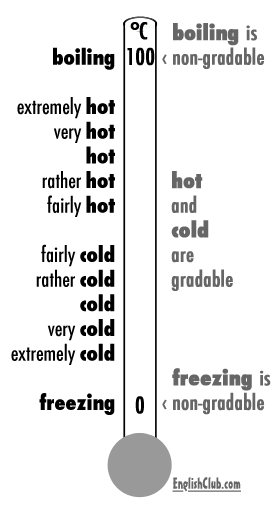miércoles, 25 de mayo de 2016
MIXED TENSES EXERCISES
http://daten.schule.at/dl/Tense_012.htm
http://www.eduhi.at/dl/MixedTenses_Letter2.htm
http://englischlehrer.de/tests/tenses.php
http://www.englishaula.com/en/pet-exam-cambridge-preliminary-english-test-free-video-lessons-and-exercises.php
lunes, 23 de mayo de 2016
PRESENT PERFECT AND PRESENT PERFECT CONTINUOUS EXERCISES
https://www.ego4u.com/en/cram-up/grammar/prepersim-preperpro/exercises
https://www.ego4u.com/en/cram-up/grammar/prepersim-preperpro/exercises?ex04
https://www.ego4u.com/en/cram-up/grammar/prepersim-preperpro/exercises?ex06
https://www.ego4u.com/en/cram-up/grammar/prepersim-preperpro/tests?test1
http://www.englishgrammarsecrets.com/presentperfectsimpleorcontinuous/exercise4.html
PRESENT PERFECT OR PRESENT PERFECT PROGRESSIVE
Often there is very little difference between the present perfect simple and the present perfect continuous. In many cases, both are equally acceptable.
- They've been working here for a long time but Andy has worked here for even longer.
- I've lived here for 10 years and she has been living here for 12 years.
To emphasize the action, we use the continuous form.
- We've been working really hard for a couple of months.
- She's been having a hard time.
To emphasize the result of the action, we use the simple form.
- I've made fifteen phone calls this morning.
- He's written a very good report.
Look at the difference in these examples.
- I've been reading this book for two months but I've only read half of it. It's very difficult to read.
- She's been trying to convince him for 20 minutes but she hasn't managed to yet.
- They've been talking about this for month and they still haven't found a solution.
When an action is finished and you can see the results, use the continuous form.
- The phone bill is enormous. You've been calling your boyfriend in Australia, haven't you?
- You're red in the face. Have you been running?
When you use the words 'ever' or 'never', use the simple form.
- I don't know them. I've never met them.
jueves, 19 de mayo de 2016
martes, 17 de mayo de 2016
lunes, 16 de mayo de 2016
jueves, 12 de mayo de 2016
lunes, 9 de mayo de 2016
Gradable / Non-gradable adjectives
TIP:
Don't try to learn lists of gradable and non-gradable adjectives! It's better to understand what makes an adjective gradable or non-gradable. This is a matter of logic and common sense. Most native-speakers have never heard of gradable and non-gradable adjectives. They just "feel" that it doesn't make sense to say "fairly excellent" or "very unique". You probably have the same idea in your language.
Adjective Gradability
Adjectives describe qualities (characteristics) of nouns. Some qualities can vary in intensity or "grade", for example:
- rather hot, hot, very hot; hot, hotter, the hottest
The adjective hot is gradable.
Other qualities cannot vary in intensity or grade because they are:
- extremes (for example: freezing)
- absolutes (for example: dead)
- classifying (for example: nuclear)
The adjectives freezing, dead and nuclear are non-gradable.

Gradable / Non-gradable adjectives
Adjectives can be either gradable or non-gradable
Gradable
Gradable adjectives are adjectives like ‘cold’ ‘hot’ and ‘frightened’. You can be very cold or a bit cold. Gradable adjectives show that something can have different degrees.
Non-gradable
Non-gradable adjectives are adjectives like ‘married’ or ‘wooden’. You can’t be very married or a bit married. Non-gradable adjectives do not have different degrees.
Adjectives like ‘terrifying’, ‘freezing’ ‘amazing’ are also non-gradable adjectives. They already contain the idea of ‘very’ in their definitions – ‘freezing’ means ‘very cold’ etc.
Using adverbs of degree
When we use adverbs of degree to modify adjectives we usually have to use different adverbs for gradable and non-gradable adjectives.
With gradable adjectives
With gradable adjectives
- It’s a bit cold in here. Shall I turn the fire on?
- He’s very interested in history. Why don’t you buy him a history book?
- This exercise is really difficult. I don’t know any of the answers.
- I’m extremely tired. I’m going to bed.
The adverbs a bit, very, really, extremely and quite can all be used with gradable adjectives.
With non-gradable adjectives
- It’s absolutely freezing in here. Shall I turn the fire on?
- He’s completely fascinated by history. Why don’t you buy him a history book?
- This exercise is absolutely impossible.
- That film is really terrifying. Don’t go and see it on your own.
The adverbs absolutely and completely can be used with non-gradable adjectives.
Notice that really can be used with both gradable AND non-gradable adjectives.
NOTE: There are other adverbs of degree that we haven’t covered in this section. The ones included here are some of the most common.
- See more at: https://learnenglish.britishcouncil.org/es/quick-grammar/adjectives-gradable-non-gradable#sthash.AgIEb4Wm.dpuf
viernes, 6 de mayo de 2016
miércoles, 4 de mayo de 2016
martes, 3 de mayo de 2016
PRACTICE Simple Past vs Past Progressive
Suscribirse a:
Comentarios (Atom)

















